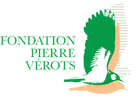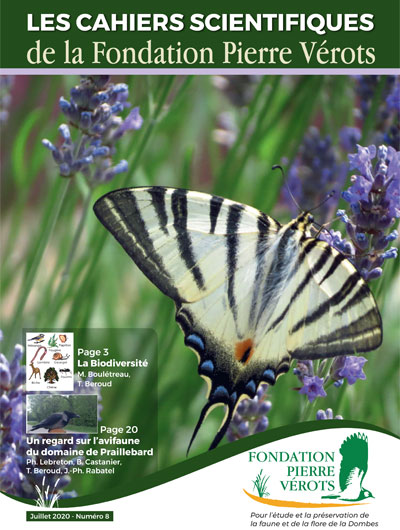Objective and Partners
The Praillebard domain offers to conduct scientific research on a protected experimental land that is not simply a botanical or zoological garden, but a complex ecosystem, where all species present are free to interact.
Researchers may freely experiment, without human perturbations with minimal vandalism or theft risks when experiments are conducted within the fenced park of the domain.
A laboratory room with dry and wet benches (and basic lab material) is available with housing possibilities for the teams provide comfortable working conditions.
Studies are realised based on the scientific interest they present after consultation of the Scientific committee that considers them and transmits their advise to the Administration board.
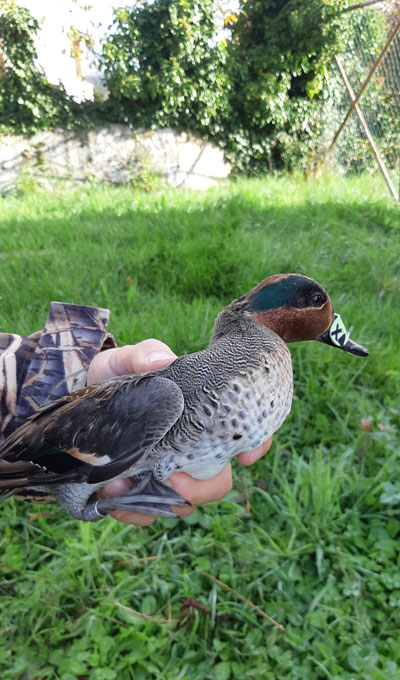
A male winter teal that is branded before release
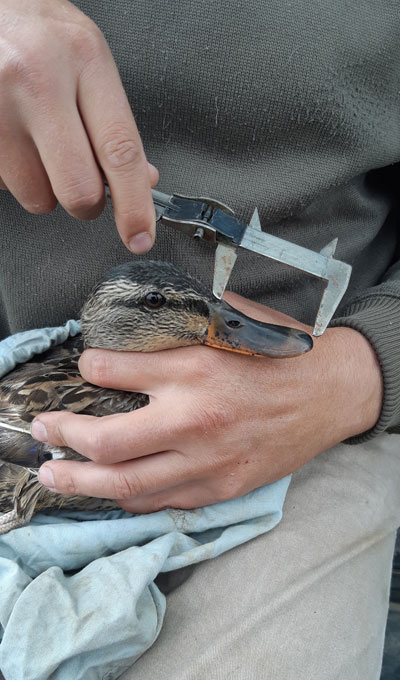
Measurement of the beak of a female mallard duck
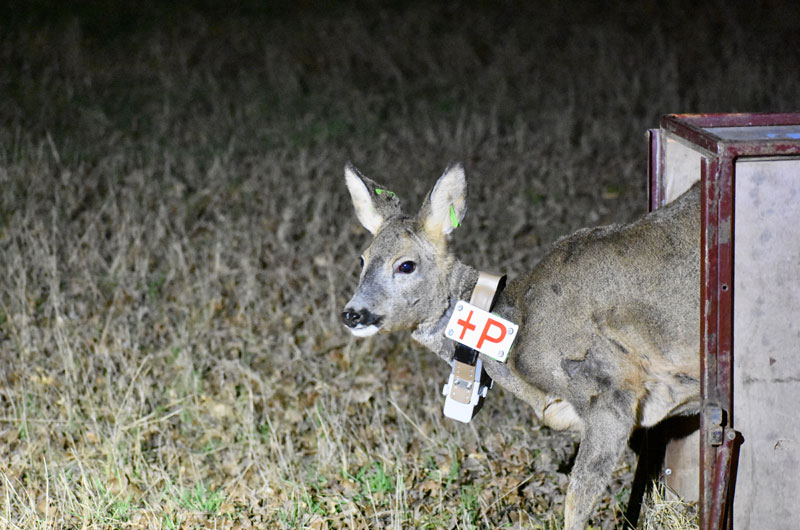
Release of a female roe deer equiped with a GPS collar
The objective is to improve our knowledge on the fauna, the flora and their environments thus allowing to adopt measures aiming to conserve or improve management. These aim to help naturalists but also hunters, anglers, farmers or natural environments managers.
We may also mention inventories realised by the Foundation, to help finetune its management, and distinguish them from scientific research projects, conducted by extermal teams, with specific objectives in biology and ecology defined by their organisms.
A variety of research programs have been undertaken by the Pierre Verots Foundation or with its support, and our aim is to further develop several of them and to enhance the publication of data already acquired. Current programs and projects are as follows:
- Climatology and hydrology:
- Continuous long-term monitoring of local climatic data: temperature, rainfall, wind, using an automatic connected meteorological station, and analysis of historical chronicles of past local climate,
- Continuous long-term measurement of water level in our four ponds, and correlation with climatic data,
- Continuous analysis of pond water quality: physical, chemical (ionic balance, oxygen,… ), biochemical (organics), biological (plankton, micro- and macro-invertebrates, algae, microbes, pathogens..). Data are correlated with climatic fluctuations, pond management and fishery yield.
- Biodiversity:
- Inventory or the main animal and plant groups, prospecting for rare and patrimonial species, observing the pluriannual evolution of the spatial distribution of aquatic plants, forest phytosociology. These programs aim to survey and better document long-term consequences of the current climate evolution.
- Dynamics of invasive and pest species: (mammals, insects, plants) and discussion about possible control strategies.
- Dynamics of populations and communities, combining demographic, genetical and behavioural approaches as related to the local ecological specificities:
- Avian communities: qualitative and quantitative trends as affected by pluriannual and long term evolution of climate, and by anthropogenic changes in their habitats,
- Organization and exploitation of weekly bird counting carried out for the twenty past years,
- behavioural studies of some avian species: feeding, breeding, nesting, sociality,
- Amphibian populations and communities, mainly of newts and salamanders: demography and age structure, reproductive biology, territorial and migratory behaviours, population genetics,
- Large herbivores: population dynamics, territoriality, effects of grazing upon forest and plant cover,
- Small mammals population: diversity, population dynamics, food choice, predators.
- Organisms of agricultural interest: insects (pests and natural predator species), soil microflora, soil rhizosphere, plant pathogen bacteria.
- Soil quality (physicochemical, microbiology and microfauna) as depending on the pond management strategy which alternates between inpounding years (with fish) and dry years (with culture of plants after drainage).
- Health programs (plants, animals and humans): pathogens and vector species.
The main scientific partners are:
Outside official organisms (INRAE, OFB), there are to our knowledge no institution that offers comparable possibilities for field scientific research in the Auvergne-Rhône-Alpes region.
Even national parks and natural reserves managed by the Environment Department– of which some permit research activities – are for from having the same possibilities, and the same flexibility.
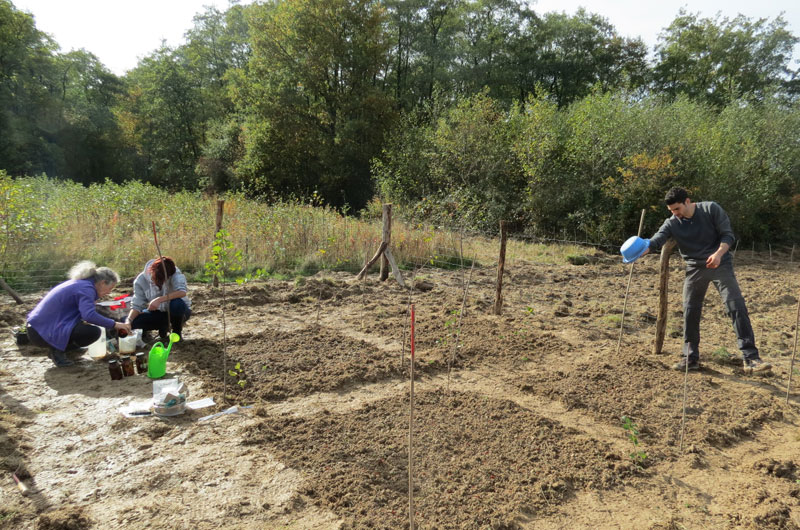
A scientific team at work
In parallel to hosting scientists on its domain, the Foundation has organised several scientific workshops on the theme of humid areas, with the corresponding papers available upon demand or downloadable.
Finally, in order to disseminate this knowledge to a scientific audience, the Foundation publishes regularly « Les Cahiers Scientifiques de la Fondation Pierre Vérots »
« Les Cahiers Scientifiques » are available upon demand or can be download here
